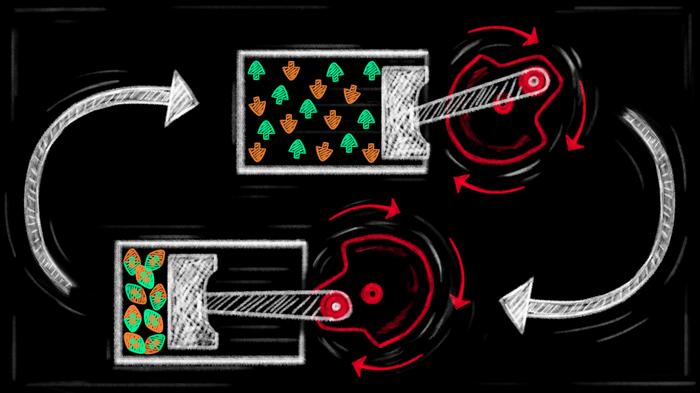Quantum mechanics is a branch of physics that explores the properties and interactions of iparticles at very small scale, such as atoms and molecules. This has led to the development of new technologies that are more powerful and efficient compared to their conventional counterparts, causing breakthroughs in areas such as computing, communication, and energy.

Credit: Mirijam Neve
Quantum mechanics is a branch of physics that explores the properties and interactions of iparticles at very small scale, such as atoms and molecules. This has led to the development of new technologies that are more powerful and efficient compared to their conventional counterparts, causing breakthroughs in areas such as computing, communication, and energy.
At the Okinawa Institute of Science and Technology (OIST), researchers at the Quantum Systems Unit have collaborated with scientists from the University of Kaiserslautern-Landau and the University of Stuttgart to design and build an engine that is based on the special rules that particles obey at very small scales.
They have developed an engine that uses the principles of quantum mechanics to create power, instead of the usual way of burning fuel. The paper describing these results is co-authored by OIST researchers Keerthy Menon, Dr. Eloisa Cuestas, Dr. Thomas Fogarty and Prof. Thomas Busch and has been published in the journal Nature.
In a classical car engine, usually a mixture of fuel and air is ignited inside a chamber. The resulting explosion heats the gas in the chamber, which in turn pushes a piston in and out, producing work that turns the wheels of the car.
In their quantum engine the scientists have replaced the use of heat with a change in the quantum nature of the particles in the gas. To understand how this change can power the engine, we need to know that all particles in nature can be classified as either bosons or fermions, based on their special quantum characteristics.
At very low temperatures, where quantum effects become important, bosons have a lower energy state than fermions, and this energy difference can be used to power an engine. Instead of heating and cooling a gas cyclically like a classical engine does, the quantum engine works by changing bosons into fermions and back again.
“To turn fermions into bosons, you can take two fermions and combine them into a molecule. This new molecule is a boson. Breaking it up allows us to retrieve the fermions again. By doing this cyclically, we can power the engine without using heat,” Prof. Thomas Busch, leader of the Quantum Systems Unit explained.
While this type of engine only works in the quantum regime, the team found that its efficiency is quite high and can reach up to 25% with the present experimental set up built by the collaborators in Germany.
This new engine is an exciting development in the field of quantum mechanics and has the potential to lead to further advances in the burgeoning area of quantum technologies. But does this mean we will soon see quantum mechanics powering the engines of our cars? “While these systems can be highly efficient, we have only done a proof-of-concept together with our experimental collaborators,” explained Keerthy Menon. “There are still many challenges in building a useful quantum engine.”
Heat can destroy the quantum effects if the temperature gets too high, so researchers must keep their system as cold as possible. However, this requires a substantial amount of energy to run the experiment at these low temperatures in order to protect the sensitive quantum state.
The next steps in the research will involve addressing fundamental theoretical questions about the system’s operation, optimizing its performance, and investigating its potential applicability to other commonly used devices, such as batteries and sensors.
Journal
Nature
DOI
10.1038/s41586-023-06469-8
Article Title
Making statistics work: a quantum engine in the BEC-BCS crossover
Article Publication Date
27-Sep-2023




